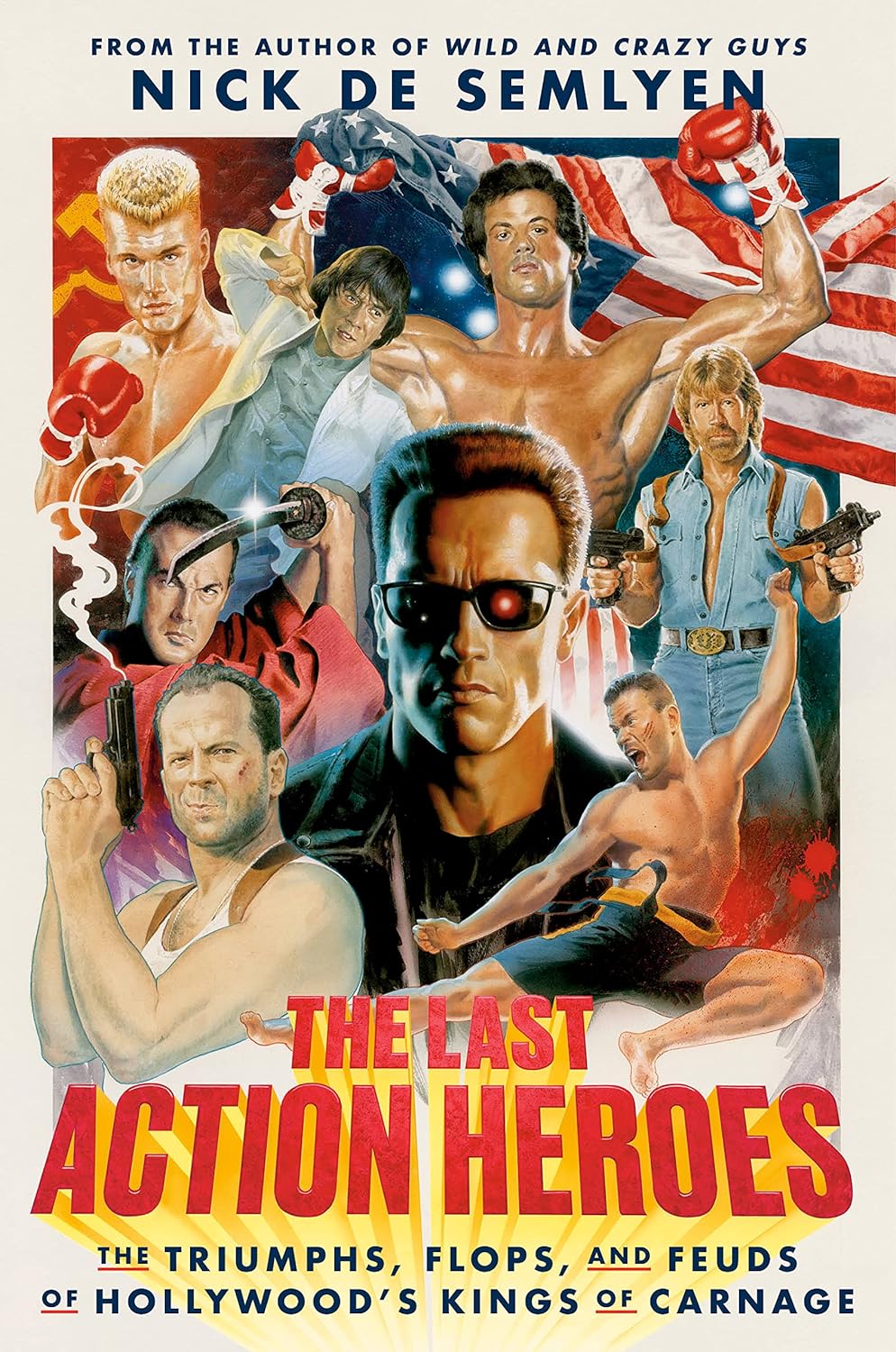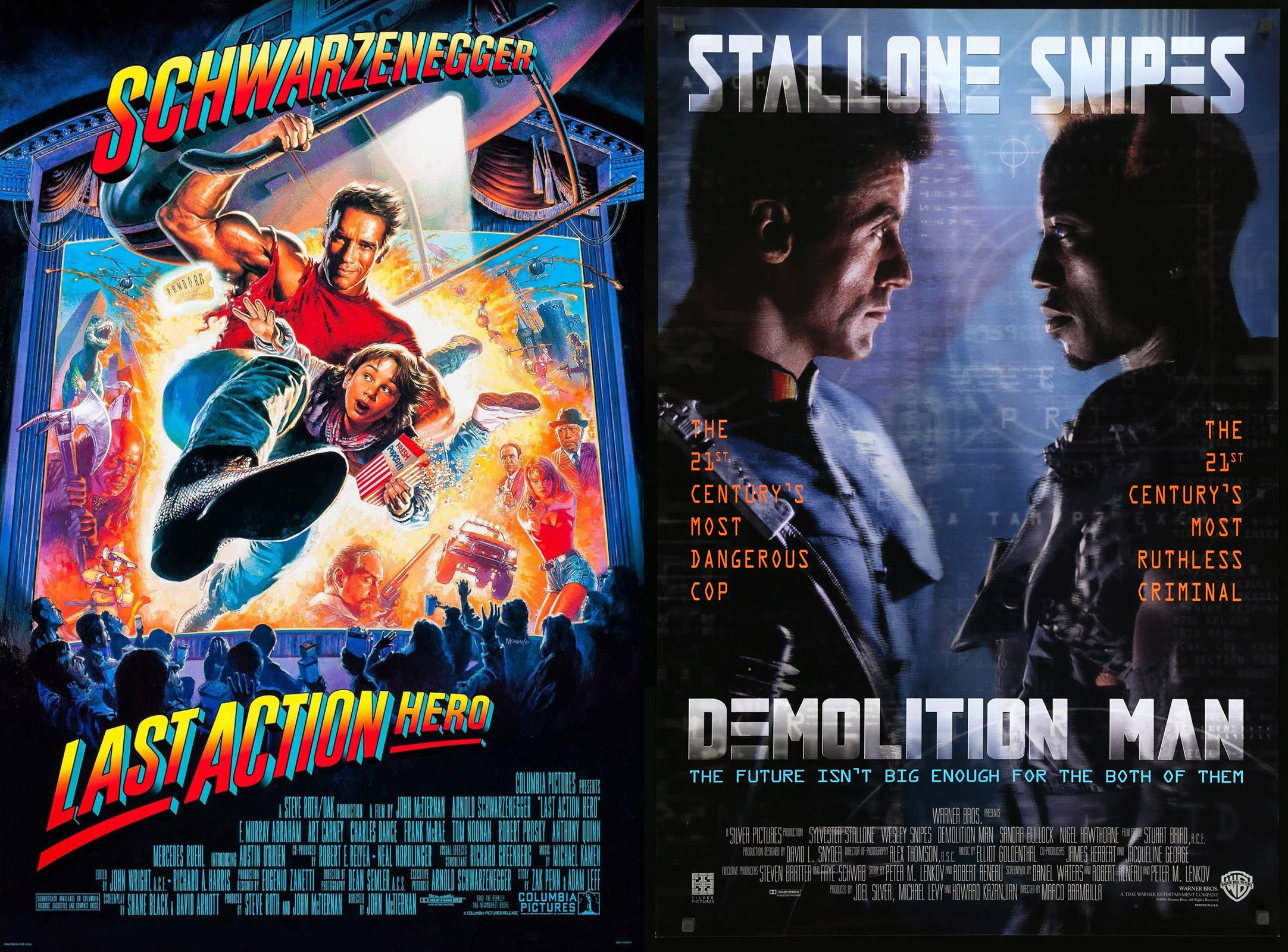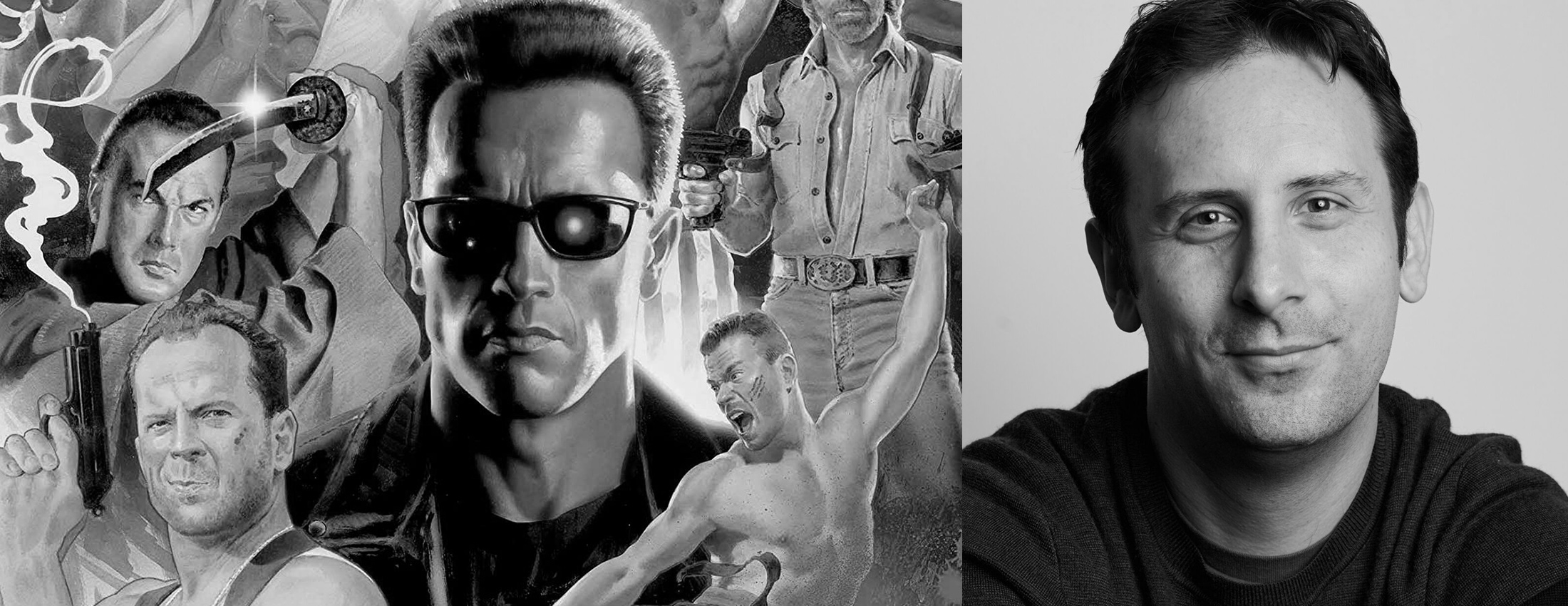With Author and Journalist Nick de Semlyen
We’ve just spent three months exhaustively detailing the conception and development of Speed. Cameras haven’t even started rolling yet! But all the same, we’ve earned a bit of a breather, so today we welcome into the fold journalist Nick de Semlyen, editor-in-chief of Empire magazine. More to the point, he is also the author of one of the summer’s hottest movie tomes, The Last Action Heroes: The Triumphs, Flops, and Feuds of Hollywood’s Kings of Carnage. In it, de Semlyen documents the era of high-octane big-screen entertainment that would pave the way for movies like Speed.
“I think it’s just a fascinating period of Hollywood history,” de Semlyen says. “It’s so excessive. I mean, the ’80s was excessive, but this just felt like the natural place to go if you are telling outrageous stories about outrageous people, because these guys were all competing, feuding, trying to outdo each other, and these movies just kind of got out of control.”

As de Semlyen surmises, Speed and movies of its ilk in the ’90s action canon served as a sort of rebuke to this decade of decadence. With its boiled-down craft discipline and lean storytelling, the film helped herald a shift in what action filmmaking could be. Which is interesting given that it comes a year after de Semlyen’s cut-off point in his book, marking Arnold Schwarzenegger’s Last Action Hero and Sylvester Stallone’s Demolition Man as the end of an era.
“When you were going into the ’90s, everything was just getting really big and bloated and expensive, which I think is partly why people love Speed, because it’s so refreshing, so stripped back,” de Semlyen says. “When you get to Demolition Man and Last Action Hero, it kind of felt right to end with those two kind of meta examinations of the action hero. I could have gone as far as Speed. I would have happily written about that. I was thinking, ‘Do you end with True Lies?’ Because that’s a really, really fun, bombastic, huge movie. But it felt nice to end the story with Arnold failing, because Arnold wins all the way through the book. You look at the ’80s and into the ’90s and he does not make a wrong move. He’s just smashing it, whereas Stallone is having huge failures and getting stung repeatedly. So, it felt nice to end with a low for Schwarzenegger and Stallone actually on top.”
The question remains, however: Where does Speed fit in the overall action movie canon? Why is it so often forgotten in that discussion? Well, who better than the guy who just documented that canon to chew on such a notion notion?
“You can draw a line from John McClane to Jack Traven quite clearly,” de Semlyen says. “[Die Hard] kind of transforms the whole genre, in terms of high-concept plot lines but also in terms of what an action hero looks like. Speed is like an evolution of that. It pushes it even further.”

Hollywood is of course enamored with an entirely different breed of spectacle entertainment these days. The action gods of de Semlyen’s account fell off their perch long ago, while the process of making movies is drastically different than it was when movies like Speed were putting butts in seats. It’s hard not to get discouraged in the futile hope that there could ever be a return to form, but it’s an era that stands the test of time and could still teach a few lessons, if the industry is willing to learn them.
“I was thinking this while I was watching [Speed] again, that it just felt so different and refreshing to what we’re used to these days,” de Semlyen says. “It’s this lean, mean, sleek, kind of shark-like movie that’s just moving. Nowadays, everything has to be interconnected and has to be setting up something. Everything is just engineered to be one piece of the puzzle that they’re going to build on. And I think what’s really refreshing about Speed, is it’s just its own thing. I’d like to think that people are going to go back and try to recreate this, but I think it’s tricky, because I think it’s multiple things that happened all at the same time. I don’t know if it is repeatable. I have hope that things will slip through like Speed, but, yeah, it saddens me. I really miss it. I think the ’90s was a golden age. I don’t think at the time people really appreciated what a golden age it was in terms of action movies.”
All of that and more this week on 50 MPH!
QUICK PLUG: Catch Kris on the scorching new podcast Die Hard on a Blank Wednesday, September 27 as he and hosts Philip Gawthorne and Liam Billingham discuss Speed and its ties to John McTiernan’s enduring action classic!
